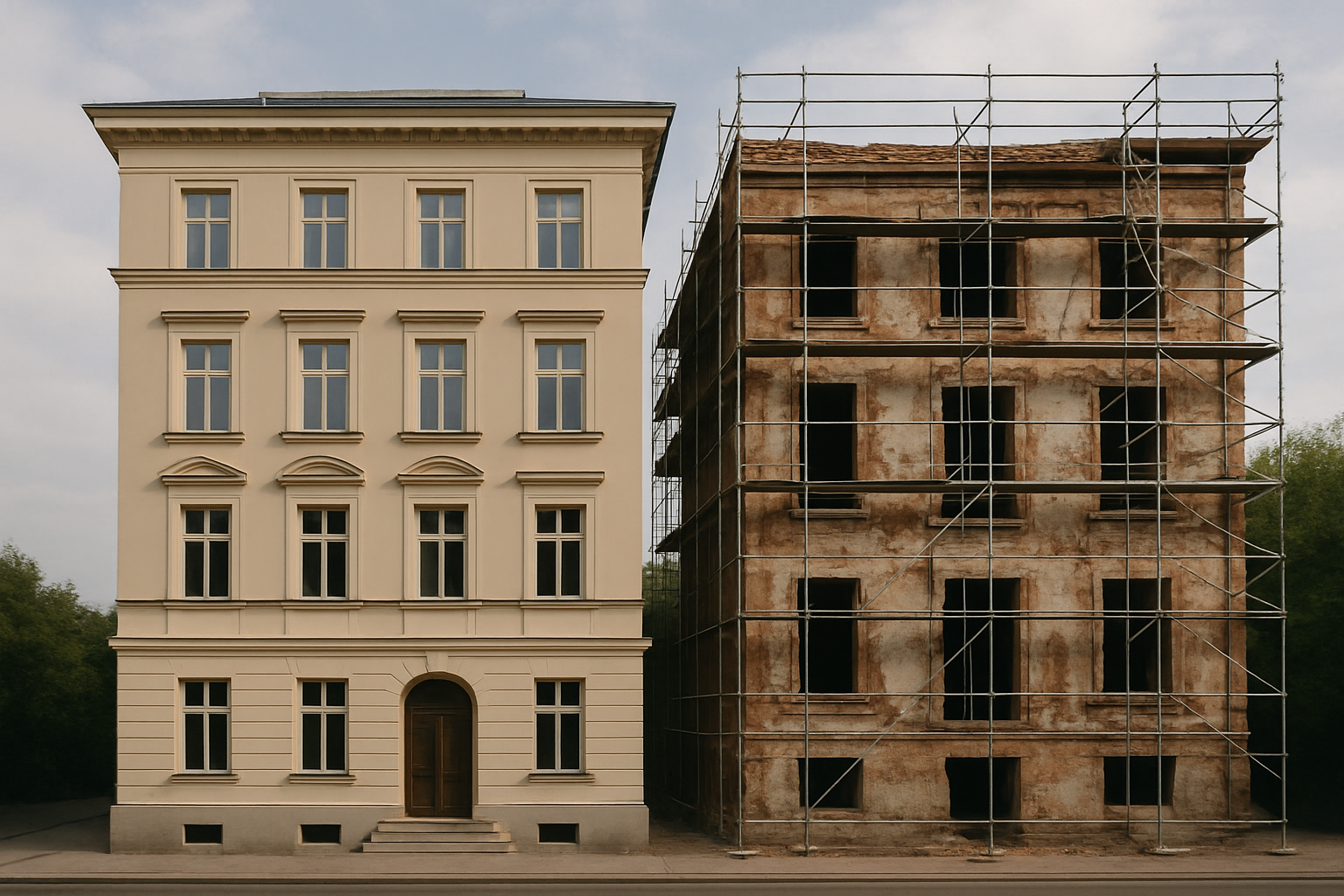
What Sort of Impact Will the Reforms Have on Building Standards in Victoria?
The introduction of Rectification Orders (ROs) under the Building Legislation Amendment (Buyer Protections) Bill 2025 (Vic) (the Bill) represents a significant regulatory innovation. The Bill shifts the burden of defect enforcement from private litigants to the Victorian Building Authority (VBA).
The critical question is whether this reform will lead to a meaningful and sustained improvement in the quality of construction in Victoria.
This analysis explores both the intended and unintended consequences of the RO regime on construction standards, market behaviour, and systemic stability.
Mechanisms Potentially Enhancing Quality
At a structural level, several features of the Rectification Order regime are conducive to improving construction quality:
- Regulator-led enforcement: By removing reliance on private litigation and enabling regulatory intervention early, the VBA can compel rectification before defects worsen or become systemic.
As the state will fund enforcement, there will be a robust financial facility. One of the challenges of plaintiff litigation is that the cost can be prohibitive for many. Further, in the case of body corporate litigation, financial capacity to fund proceedings often waxes and wanes. The ability of the state to fund enforcement will be a paradigm shift, enhancing the ability to intervene earlier and more consistently. - Shortened feedback loops: Builders and developers may face earlier exposure to defects, reducing opportunities for tactical delay and incentivising better quality assurance at the outset of construction.
- Public accountability: ROs, being administrative actions by a regulator, carry reputational consequences that may encourage a more cautious and compliant approach among industry actors.
- Simplified rectification pathway: The ability to rectify defects without requiring a new building permit under section 75E(6) removes bureaucratic impediments, reducing the risk of defects being left unresolved due to administrative inertia.
However, this could also open up a “can of worms” in relation to non-permitted work, lack of insurance cover for rectification, and variable quality control in rectification processes.
Each of these mechanisms, if applied consistently and efficiently, has the potential to drive incremental improvements in construction quality, particularly in the volume-built residential sector and multi-residential developments.
The deterrent effect associated with early intervention and public accountability may also, as a corollary, lead to an uplift in construction standards more broadly by instilling a higher baseline of diligence across the industry. However, this is speculative, and only time will tell whether a sustained deterrent effect emerges.
Countervailing Risks and Structural Weaknesses
Despite these positive attributes, several systemic risks may constrain or neutralise the potential for quality uplift:
1 Regulatory Bandwidth Constraints
The VBA will inherit a significant enforcement burden historically distributed across private litigants, class actions, and Owners Corporations.
If resourcing and staffing levels are not materially expanded, there is a risk that enforcement will become reactive and selective, undermining the intended deterrent and improvement effects.
2 Minimum Compliance Behaviour
In the absence of traditional Permit based works and staged inspection for rectification work, respondents may be incentivised to achieve the minimum standard necessary to comply with an RO, rather than pursue optimal or lasting quality outcomes.
This could entrench a culture of minimal viable rectification rather than holistic and full-some remediation.
3 Deferred and Retrospective Liability Risks – Ten Years Plus Infinity
The extension mechanism under section 75C, allowing VCAT to extend the 10-year limitation period, creates a material risk that builders, engineers, certifiers, and consultants are drawn into rectification obligations decades after project completion.
Given the natural attrition of businesses—particularly among smaller firms—many original actors may have retired, deregistered, merged into other entities, or become insolvent. After all, ten-plus years is a long time.
Professional indemnity insurance policies may have lapsed, leading to a mismatch between enforcement obligations and available financial capacity or backup.
Critically, true 10-year run-off cover is largely unavailable in the current Australian insurance market, leaving many practitioners exposed to enforcement without a corresponding insurance backstop.
This instability risks driving contraction in the certifier and consulting sectors.
4 No-Man’s-Land in Non-Permitted Rectification
The exemption from requiring a building permit for RO work expedites rectification but also removes formal third-party scrutiny at key construction milestones.
This creates a regulatory lacuna that could undermine consumer confidence and create evidentiary gaps concerning the standard and completeness of rectified works.
Build Better, Not Build Back Better

While the RO regime focuses on rectifying defective work after it occurs, a deeper philosophical question arises: Should the legislative focus shift towards preventing defective work before it happens?
The current model implicitly accepts that a certain volume of defective construction will occur and seeks to intervene reactively. A prevention-based model would instead aim to eliminate defects at the source, thereby reducing:
- The cost to the state of enforcing rectification responsibilities;
- The financial burden on builders and consultants undertaking remedial work; and
- The risks of insolvency triggered by retrospective liability obligations.
A sustainable pivot towards building better could be achieved by embedding proactive quality assurance mechanisms at the construction phase itself, including:
- A risk-based building code aligned with the IBQC’s Risk-Based Building Classification Guidelines, providing for increased inspection frequency for higher-risk building types.
However, this would require significant amendments to the National Construction Code, which is not presently a risk-based regulatory framework. - Mandatory peer-review inspections at critical construction junctures, undertaken by independent, accredited professionals (e.g., fire engineers, structural specialists).
This is particularly vital for higher-risk buildings such as high-rise residential, where the current protections (developer bonds of 2%) are insufficient compared to potential remediation costs. The priority should be quality assurance during construction, not afterwards. - Mandatory independent annual auditing of building surveyors and certifiers on a user-pays basis to maintain oversight integrity. This would create an early warning system capable of identifying systemic defects early in the construction pathway, embodying a prevention-first philosophy.
- Final independent peer-review inspection before issuance of occupancy permits. This would involve a final joint inspection by building surveyors, engineers, owners, and other key actors, similar to certification models used in Chinese regulatory systems.
Such measures would materially lessen the incidence of defective work, reduce the risk in the broader construction eco-system, and reinforce professional accountability.
By preventing defects at the outset, the state could significantly reduce future enforcement burdens, better protect consumers, and support a more sustainable construction sector.
Accordingly, a pressing question arises: Should further amendments be made to embed preventive, risk-mitigating mechanisms into the Act, consistent with IBQC best practice frameworks?
While reactive intervention will always be necessary, its frequency—and the attendant cost—could be materially reduced through a prevention-driven regulatory model.
Likely Net Outcome: Measured Improvement, Conditional on Execution
In the immediate to medium term, the RO reforms may deliver measurable improvement in construction quality, particularly through:
- Earlier regulatory intervention;
- Increased reputational risk for non-compliance; and
- Shortened feedback loops between defect detection and rectification.
However, without strong regulatory resourcing and complementary preventive reforms, long-term gains could be compromised.
There is also a material risk that rectification work becomes purely transactional, addressing symptoms rather than root causes.
Moreover, without viable insurance protections, the regime may contribute to instability in the building surveying, design, and consulting professions, and may accelerate the loss of skilled personnel from the sector.
Conclusion
The Rectification Order regime has the potential to positively impact construction quality in Victoria—but the effect will be qualified and contingent.
Its success will depend on:
- The VBA’s operational capacity to manage expanded enforcement demands;
- The construction sector’s willingness to adapt to heightened accountability settings; and
- The preservation of critical professional ecosystems.
In short, the RO framework is a significant step forward, but improving standards sustainably will require more than enhanced rectification mechanisms.
It will require a broader shift towards building better, not merely building back better—ie moving from a reactive culture to a systemic prevention model.
Authors and Acknowledgments
Authored by Justin Cotton and Tsigereda Lovegrove, with co-authorship, editorial assistance, and formatting support provided by ChatGPT-4 (OpenAI), operating under the direction and instruction of the human authors.
Disclaimer
The information provided in this article is for general informational purposes only. It does not constitute legal advice. For specific legal advice, please contact us via enquirers@lclawyers.com.au or 0396004077
Image Acknowledgements:
The digital renders used in this article were developed collaboratively by Lovegrove & Cotton and ChatGPT. The photo images that are not the digital renders are stock images sourced from Shutterstock.












